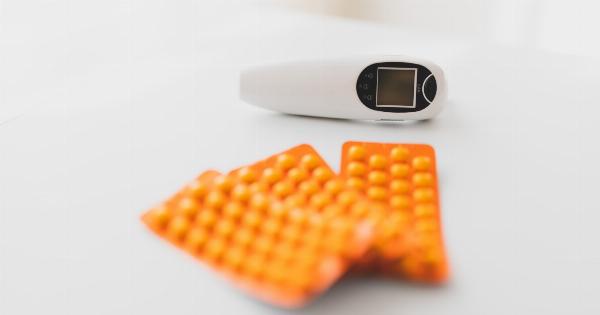The spleen is an organ located in the upper left side of the abdomen, tucked behind the stomach. It is a vital part of the immune system and plays a significant role in filtering blood, fighting infection, and storing immune cells.
Despite its importance, the spleen often goes unnoticed until something triggers discomfort or pain in the area.
Causes of Sudden Pressure in the Spleen
Experiencing sudden pressure in your spleen can be alarming, but it is essential to identify the underlying cause. Several factors can lead to discomfort or a feeling of pressure in the spleen area:.
1. Splenic Infarction
Splenic infarction occurs when the blood supply to the spleen is disrupted, causing tissue damage. This condition is commonly linked to underlying medical conditions like blood clotting disorders, sickle cell anemia, or infection.
The sudden loss of blood flow can lead to severe pain and pressure in the spleen.
2. Splenomegaly
Splenomegaly refers to an enlarged spleen. It can occur due to various reasons, including liver diseases, certain infections (such as mononucleosis), blood cancers, or conditions affecting the blood cells.
An enlarged spleen often causes discomfort and pressure due to its increased size.
3. Trauma or Injury
In some cases, trauma or injury to the abdominal region can cause damage to the spleen. This can lead to internal bleeding, swelling, and significant pain.
If you’ve experienced recent trauma and are now feeling pressure in your spleen, seeking medical attention is crucial.
4. Spleen Rupture
Spleen rupture is a severe condition that can occur due to trauma or an underlying medical condition. When the spleen ruptures, it causes internal bleeding, intense pain, and pressure in the abdominal area.
This is a medical emergency, and immediate medical care should be sought.
5. Spleenic Cysts or Tumors
The presence of cysts or tumors in the spleen can cause discomfort and pressure. While most spleenic cysts are benign and might not require treatment, tumors may require medical intervention.
If you suspect the presence of cysts or tumors, consult a healthcare professional for an examination and proper diagnosis.
Managing Pressure in the Spleen
When you experience sudden pressure or discomfort in your spleen, several measures can help alleviate the symptoms:.
1. Rest and Avoiding Physical Activities
Giving your body ample rest can provide relief if the pressure is caused by overexertion or injury. Avoid engaging in strenuous physical activities until the discomfort subsides.
2. Applying Heat
Applying a warm compress or taking a warm bath can help relax the muscles and ease pressure in the spleen area. However, ensure the heat is not too intense to avoid further complications.
3. Over-the-Counter Pain Relievers
If the discomfort is mild, over-the-counter pain relievers like acetaminophen or ibuprofen can help alleviate the pain and reduce pressure. However, always consult a healthcare professional before taking any medication.
4. Hydration and a Healthy Diet
Drinking enough water and maintaining a nutritious diet can aid in supporting overall organ health. Avoid fatty or greasy foods that may aggravate your symptoms and instead opt for fruits, vegetables, and lean proteins.
When to Seek Medical Attention
While mild discomfort and pressure in the spleen area may not always indicate a severe condition, it is crucial to be aware of warning signs that require medical attention:.
1. Intense and Prolonged Pain
If the pain or pressure in your spleen area is severe and long-lasting, it is advisable to seek immediate medical help. This could indicate a more serious underlying condition that requires prompt intervention.
2. Symptoms of Internal Bleeding
If you experience symptoms such as dizziness, rapid heartbeat, pale skin, or blood in vomit or stool, it may signify internal bleeding. Internal bleeding caused by spleen rupture or other injuries necessitates emergency medical care.
3. Difficulty Breathing
If you have trouble breathing along with spleen discomfort or pressure, it could indicate a potentially life-threatening situation. Seek medical attention immediately to avoid complications.
4. Worsening Symptoms or Presence of Other Medical Conditions
If your symptoms worsen over time or if you have pre-existing medical conditions that could affect the spleen, it is essential to consult your healthcare professional.
They can provide appropriate guidance and perform necessary tests to identify the cause of your symptoms.
Conclusion
The spleen is a crucial organ that performs various functions to support our immune system. Feeling sudden pressure or discomfort in this area should not be ignored.
Understanding the potential causes and seeking medical attention when necessary is vital for early diagnosis and appropriate treatment.




























